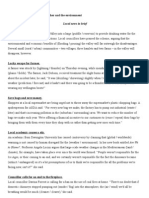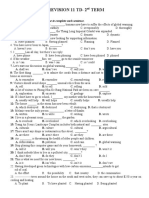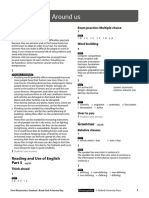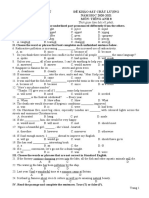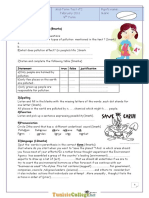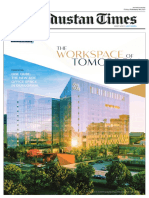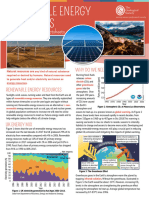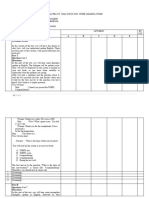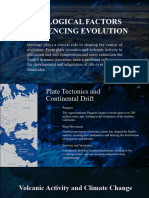0% found this document useful (0 votes)
19 views5 pages(CB) Lesson 11
This document is a lesson plan focused on improving students' speaking skills related to climate change and the natural world for the IELTS exam. It includes objectives for using collocations about weather and climate change, language exercises, and strategies for expanding answers using cohesive devices. The lesson also features an interview with an environmental advocate, Gary Prime, discussing the urgency of climate change and actions individuals and governments can take.
Uploaded by
Ngọc PhạmCopyright
© © All Rights Reserved
We take content rights seriously. If you suspect this is your content, claim it here.
Available Formats
Download as DOCX, PDF, TXT or read online on Scribd
0% found this document useful (0 votes)
19 views5 pages(CB) Lesson 11
This document is a lesson plan focused on improving students' speaking skills related to climate change and the natural world for the IELTS exam. It includes objectives for using collocations about weather and climate change, language exercises, and strategies for expanding answers using cohesive devices. The lesson also features an interview with an environmental advocate, Gary Prime, discussing the urgency of climate change and actions individuals and governments can take.
Uploaded by
Ngọc PhạmCopyright
© © All Rights Reserved
We take content rights seriously. If you suspect this is your content, claim it here.
Available Formats
Download as DOCX, PDF, TXT or read online on Scribd
/ 5





